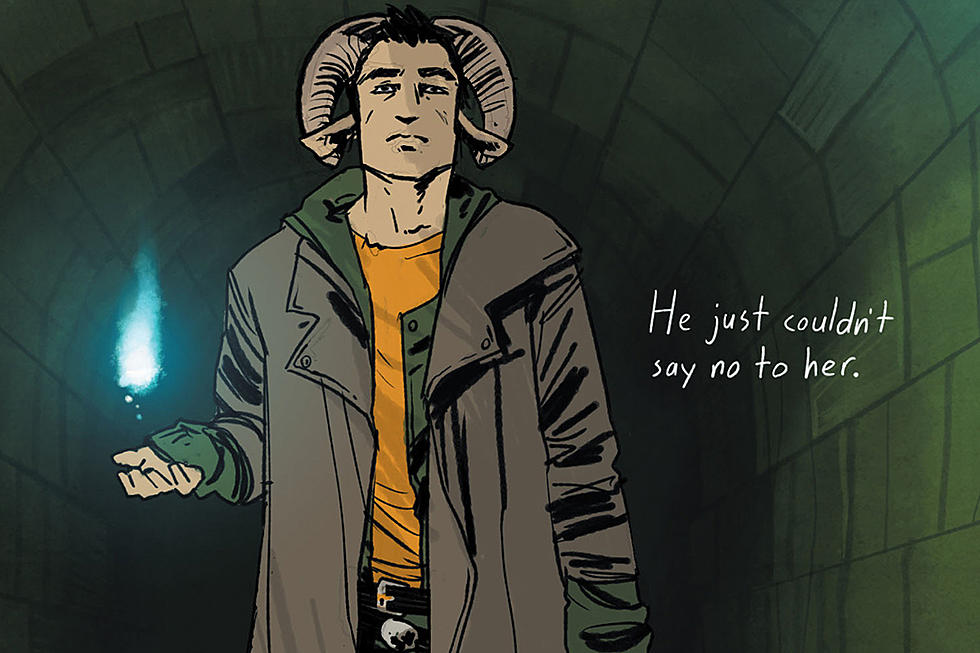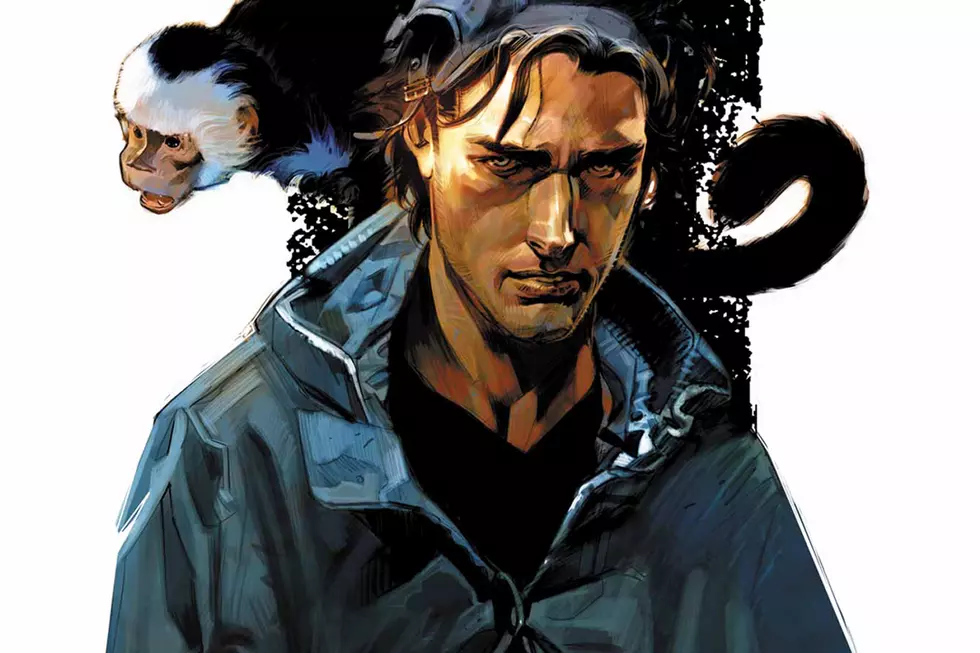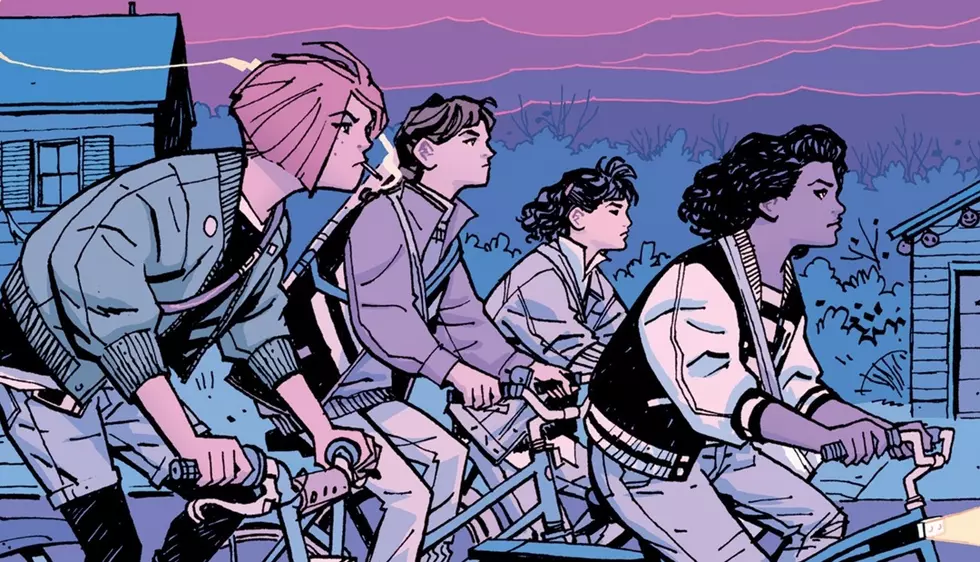
How ‘Y: The Last Man’ Turned The End of Mankind Into A Great Escape
First published on this day in 2002, Y: The Last Man remains an ambitious, fulfilling, entertaining and problematic work that is, above all else, hugely compelling. Created by Brian K. Vaughan, Pia Guerra and Jose Marzan Jr, and edited by Heidi MacDonald, the Vertigo-published series told the story of a world where every single male on Earth suddenly died with no warning.
Simple enough, and yet fertile ground to create, well, an infertile society. It’s a grand high concept to say, "all the men are dead,” but humanity is such a messed up, bastard thing that every single branch of society is brutally screwed over by the absence of men.
As noted in the second trade alone, the death of all men means the death of 48% of the global population; 99% of landowners; and 100% of Catholic priests, Muslim imams, and Orthodox Jewish rabbis. It also means 92% of violent criminals are dead, as are 99% of all electricians, mechanics, and construction workers. 51% of the planet’s agricultural workers still live, and Israel, Australia, Norway and Sweden are arguably now the strongest military forces on the planet.
With every single man dying at once, planes fall out the sky, ships are lost at sea, and everything goes instantly to hell. Society can hypothetically recover, but only until the last of the current generation are dead. Humanity has a death sentence, in other words, and every single woman on the planet has to come to terms with that fact.
Their fathers, brothers, sons, husbands --- all dead. It’s the making of an utterly fascinating comic, one that seems impossible to even begin writing, but somehow came to life in the hands of a smart and capable creative team.
The thing is, though.
Although there’s a world of women to focus on, writer Vaughan still found a way to tell the male perspective. Y: The Last Man, as you might have guessed, chooses to focus itself on the one man who made it out the ‘menocide’ --- Yorick Brown, a budding escapologist/continual failure. All at once, the staggeringly vast premise of the book narrows itself down to whatever the male lead sees ---- and viewing society through the one remaining pair of masculine conceits. For better or worse, we’re spending our time in Yorick’s life, rather than anyone else.
That said, by having only women in the supporting cast, the series also created many of the most memorable female characters in years.
From the cynical and hurt Dr Mann to reforming mercenary Rose, from Beth to, well, Beth. From the problematic Alter to the magnificent ‘355’, who alone gives the book the greatest portrayal of heroism I’ve ever seen in a comic. 355 is sometimes forgotten about in discussion about comics characters, or about writing, and design, but even now, as I read bits and piece of the run to aid writing this piece, I see that she’s a complex and wonderful creation. You build an incredible loyalty to 355 as the series goes on.
What works here is that the core and supporting cast are hugely different from one another, offering multiple angles on the situation, which range from the “strong female character” cliché to any number of original and fresh character concepts. And the most defining character from the series is actually, arguably, Yorick’s sister Hero, who heads in a number of directions --- some more misguided than others --- before finding closure, clarity, but warmth in her own identity.
Patriarchy dominates everybody in clunking and rambling ways, because it dominates now. But it slowly dissipates over the course of 60 issues, until in the final issue it makes a great escape into the clouds.
Vaughan’s scripting is knowing and arch, which allows him to escape some of the criticisms that would land hard on a lesser writer. He creates whipcrack characters that burrow deep into your empathy, and the series actually makes their journey feel tiring, hard, and tough. Much like in Saga now, there’s a grand scale at work in Y: The Last Man which starts in a confined location and slowly sweeps into an international, grandiose exploration of everything and anything. But it’d be nothing without Pia Guerra’s storytelling.
It's hard to imagine many other artists that could achieve what Guerra achieves in this book; she not only tells the story superbly throughout every issue --- at times she even tells a wordless comic about the exploits of a monkey --- but she also takes the time to give each of the women their own distinctive looks and body language; a care not often taken by male artists.
Guerra takes a book that at times races so fast that it’s surprising it doesn’t hurl out its lungs onto the page; and makes it a work of grace, subtlety, and power. There are so many memorable images within the series that I don’t think I’ll ever forget --- for better or worse --- and it’s because of Guerra.
Y: The Last Man attempts everything, and has a high hit rate. Even when it swings wild, it creates fascinating feminist theories in absence. It hasn’t dated, like much of Vertigo’s output, but somehow feels real and lived-in and heartening every year. It’s one of my favorite series of all time --- a magnificent, damned, petty, and hilarious roam through society’s trail.
More From ComicsAlliance






![She-Hulk Gives In To Rage in ‘Hulk’ #1 By Mariko Tamaki And Nico Leon [Preview]](http://townsquare.media/site/622/files/2016/11/Hulk_1_Featured.jpg?w=980&q=75)


